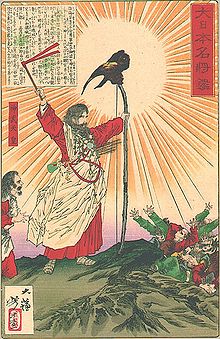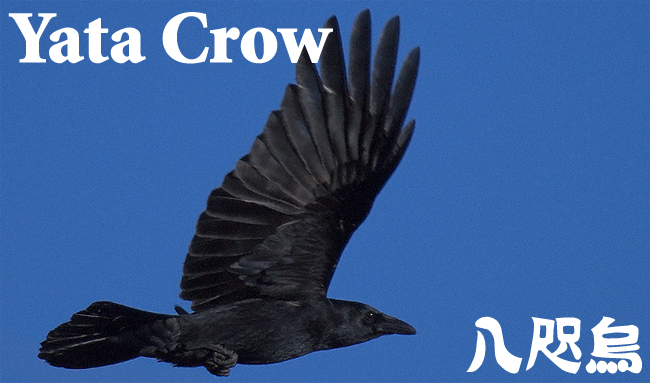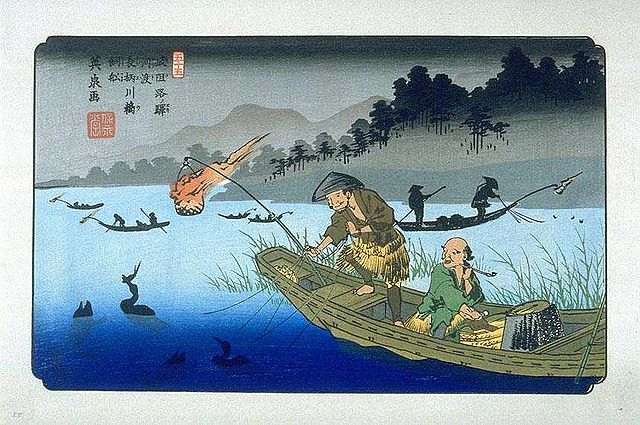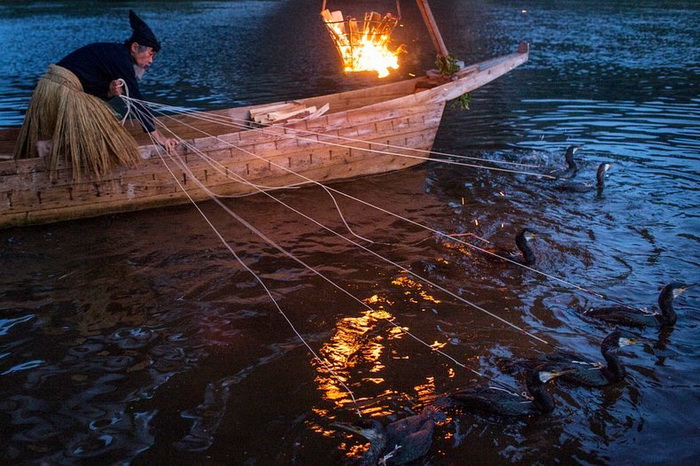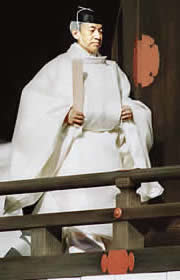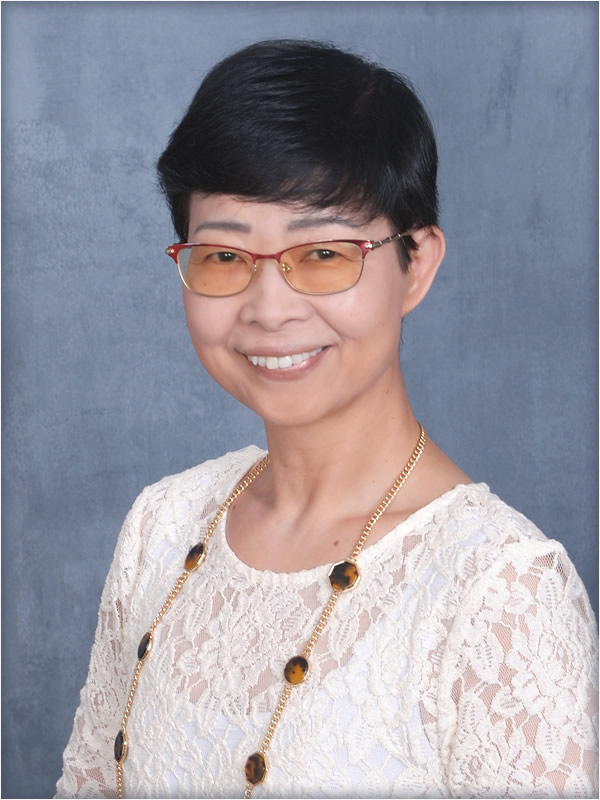Guided by Yatagarasu (Yata Crow)
(Emperor Jimmu and Yatagarasu/Yata Crow)
(Yatagarasu/Yata Crow)
The sacred sword, Saji Futsu-no Kami (Mika Futsu-no Kami/Futsu-no Mitama), which was dedicated to him, saved Kamuyamato Iwarebiko’s life. Now Takagi-no Ookami (Takami Musuhi-no Kami) , because of this very incident, made a special suggestion to him.
“From now on you cannot proceed by yourself because there seem to be very many indigenous gods who are rebellious to you. I will send Yatagarasu to you. The crow will guide you so you can proceed safely.”
The Heavenly Child followed Takagi-no Ookami’s suggestion. Following Yatagarasu, he arrived at the downstream of Yoshino River, where he found the person fishing with a bamboo trap. Kamuyamato asked him who he was. The fisherman said that his name was Niemotsu-no Ko, one of local gods. He is an ancestor of a group called Ukai (cormorant fishing) in Ada (Gojo, Nara, Japan).
(Cormorant Fishing called Ukai in Japanese)
When he moved on, Kamuyamato saw a person with “a tail” coming out of a well. The well was glowing! Again he asked him who he was. The tailed person said that he was another local god named Ihika, who is an ancestor of the clan called Yoshino-no Obito (Yoshino, Nara, Japan). The thing looking like “a tail” is considered to have been a long fur looking like an animal’s tail, which was often worn by local woodcutters.
As he was moving on into the mountains, Kamuyamato came across another man with “a tail,” who came out of the rock. Kamuyamato asked him who he was again. The man with “a tail” told him that his name was Iwaoshiwaku-no Ko, one of the local gods and that he came out to see Kamuyamato to greet him because he had heard that the Heavenly Child was showing up. This god is an ancestor of the local clan called Kuzu in Yoshino.
This clan, by the way, would serve the Japanese Emperors from generation to generation by singing and dancing at occasions like Daijosai (the Great Thanksgiving Festival after the Enthronement) and by offering local goods to the Emperors to show their loyalty to their one and only Lord.
(the Emperor Heisei leaving for Daijosai)
Kamuyamato bravely and powerfully proceeded to the place called Uda (Nara, Japan). The Emperor-to-be proceeded so decisively to carry out his mission that this place was to be called Uda-no Ukachi (Uta-no Ugashi, Uda, Nara, Japan).
Thus, one local god or an ancestor of the local clan, one after another, submitted himself and swore his loyalty to the first Emperor-to-be. You can easily imagine, however, there were some local gods or ancestors of the local clans who were unwilling to do so or even who became rebellious to Kamuyamato, the Heavenly Child, can’t you? Next Friday, I will talk about some of those rebels!!

